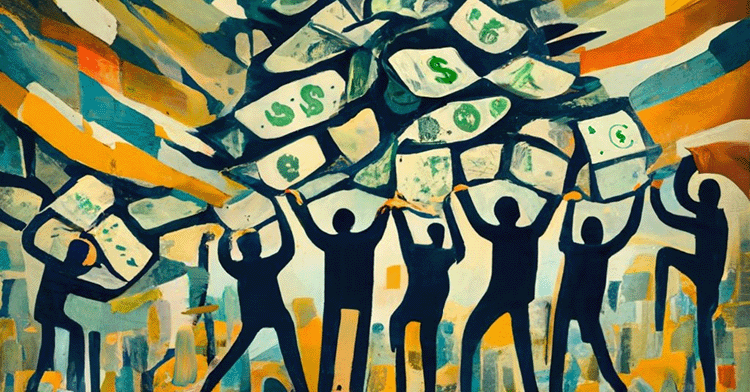If Hollywood were to offer a movie version of the Great Recession, the storyline would revolve around a tough-minded Wall Street CEO who after some soul-searching experiences an epiphany. Realizing that his company’s single-minded dedication to profit has cost millions of people their homes and retirement savings, the leading character pronounces a new and firm commitment to do well by shareholders, leadership, and customers alike. In the final scene, the CEO tells his board members, “It’s time we realize that we are in this together.” They all stand and cheer as the music swells and cameras pan to full-screen.
In real life the financial sector has experienced no such epiphany. Even though five million Americans face foreclosure, the banks behind these mortgages have done little to curb these current fiscal disasters. Relatively few loans have been modified to enable families to remain in their homes. As the unemployment rate hovers at a 26-year high of 10%, the industry is poised to increase executive bonuses by 40%.
In other words, financial leaders have yet to take the view that we are in this together; or that our current financial hardships require shared sacrifice and shared responsibility.
Hollywood fantasies aside, few today actually expect moral behavior from banks. Instead, most consumers have concluded that financial institutions are amoral corporations whose actions depend singularly on risk-reward calculations. Even corporate acts of charity are generally deemed to be the price of public relations instead of a genuine sense of citizenship. Some commentators are encouraging homeowners to take their cues from banks and behave with fewer scruples when it comes to household financial obligations.
It would be easy enough, given our current financial climate, to pursue a moral race-to-the-bottom. Rebuilding morality in the financial sector is far more difficult.
As Christians join in this task, do we do so as moral models – changing how we do business personally or in our churches? Or are we called to be social reformers, advocating fair policies, moving voices and dollars to encourage just decisions by law-makers and corporations? Perhaps both.
Consider the decision this summer by 50 bishops of the United Methodist Church to decline salary increases and reduce their pay. While many denominations are cutting back or freezing salaries, the United Methodist bishops have publicly linked their decision to values of solidarity and gratitude. In so doing, they offered a clear alternative to the ever-expanding paychecks that drive Wall Street.
Theirs is also a persuasive public witness. The Bishops’ decision shows that more equitable financial practices are possible and that we need not be bullied by the big banks into accepting business at all costs. It reminds everyone that shared responsibility and shared sacrifice are indeed part of our common story.







